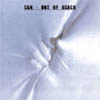 Germany's Can is certainly the most influential band to emerge from thefirst wave of krautrock. Their first six studio albums are unparalleledmasterpieces of experimental rock, effortlessly combining jazz andclassical influences with psychedelic guitar rock, ethnic percussionand unhinged vocal improvisations. The past few years have seen theentire back catalog re-mastered and re-released in deluxe CD and LPeditions on Can's own Spoon imprint. Every album, that is, except forthe much-maligned 1978 release Out of Reach,which Can seem eager to completely omit from their discography. Assuch, it has long remained one of their rarest and least talked aboutalbums. Fortunately for completists, Marginal Talent has now issued are-mastered CD of this most obscure of Can records. The received wisdomis that Can began to decline when Japanese vocalist Damo Suzukideparted to join a religious sect after 1976's Future Days.While this is somewhat accurate, hindsight has been kinder to thelater, more homogenized Can albums. We can now retrospectively admitthat Soon Over Babaluma and Flow Motion both containgreat moments, displaying the same ingenious instrumental fusion thatcharacterized Can's most fertile creative period. Record collector loredemands that Out of Reach be a similarly underrated, unsung gem. Unfortunately, this is just not the case. Out of Reach is one of Can's worst albums, and while it has its moments, it must be relegated to the same pile as Saw Delight and Inner Space- disappointing latter-day efforts that make convincing arguments thatCan should have retired earlier. The main reason for this drop inquality was most likely the departure of bassist Holger Czukay,founding member and innovator. To make up for Czukay's noticeableabsence, Rosko Gee and Reebob Kwaku-Baah of the execrable prog-rockband Traffic joined the line-up. Their influence is an unwelcome one,to put it mildly. Gee and Kwaku-Baah bring with them a penchant forpointless jazz-inflected solos that drone on endlessly, watering downthe usually explosive chemistry between Irmin Schmidt, Jaki Liebezeitand Michael Karoli. "Serpentine" introduces this incarnation of Can,with a mildly engaging marriage of ethnic instrumentals and elevatorjazz. The music is far from terrible, but compared to dynamicmasterpieces like Ege Bamyasi and Tago Mago, it'spositively snore-inducing. "Pauper's Daughter and I" is livelier, butis marred by the badly delivered nursery rhyme lyrics from Rosko Gee."November" is by far the best track on the album, the one song wherethe fuzz guitar really lets loose, and the rest of the band'simprovisations build a trippy, pitch-perfect backdrop for Karoli'samazing soloing. "Seven Days Awake" starts out on an interesting note,but soon declines into pointless repetition. "Give Me No 'Roses'"sounds like a bad Traffic outtake, as does the sub-par reggae of "LikeInobe God". The one-and-a-half minutes of "One More Day" is the album'stribal swansong. This is far from essential Can, even more troublingthan 1989's ill-advised reunion album Rite Time. If you are looking to collect every Can album, put Out of Reach right at the bottom of the list.
Germany's Can is certainly the most influential band to emerge from thefirst wave of krautrock. Their first six studio albums are unparalleledmasterpieces of experimental rock, effortlessly combining jazz andclassical influences with psychedelic guitar rock, ethnic percussionand unhinged vocal improvisations. The past few years have seen theentire back catalog re-mastered and re-released in deluxe CD and LPeditions on Can's own Spoon imprint. Every album, that is, except forthe much-maligned 1978 release Out of Reach,which Can seem eager to completely omit from their discography. Assuch, it has long remained one of their rarest and least talked aboutalbums. Fortunately for completists, Marginal Talent has now issued are-mastered CD of this most obscure of Can records. The received wisdomis that Can began to decline when Japanese vocalist Damo Suzukideparted to join a religious sect after 1976's Future Days.While this is somewhat accurate, hindsight has been kinder to thelater, more homogenized Can albums. We can now retrospectively admitthat Soon Over Babaluma and Flow Motion both containgreat moments, displaying the same ingenious instrumental fusion thatcharacterized Can's most fertile creative period. Record collector loredemands that Out of Reach be a similarly underrated, unsung gem. Unfortunately, this is just not the case. Out of Reach is one of Can's worst albums, and while it has its moments, it must be relegated to the same pile as Saw Delight and Inner Space- disappointing latter-day efforts that make convincing arguments thatCan should have retired earlier. The main reason for this drop inquality was most likely the departure of bassist Holger Czukay,founding member and innovator. To make up for Czukay's noticeableabsence, Rosko Gee and Reebob Kwaku-Baah of the execrable prog-rockband Traffic joined the line-up. Their influence is an unwelcome one,to put it mildly. Gee and Kwaku-Baah bring with them a penchant forpointless jazz-inflected solos that drone on endlessly, watering downthe usually explosive chemistry between Irmin Schmidt, Jaki Liebezeitand Michael Karoli. "Serpentine" introduces this incarnation of Can,with a mildly engaging marriage of ethnic instrumentals and elevatorjazz. The music is far from terrible, but compared to dynamicmasterpieces like Ege Bamyasi and Tago Mago, it'spositively snore-inducing. "Pauper's Daughter and I" is livelier, butis marred by the badly delivered nursery rhyme lyrics from Rosko Gee."November" is by far the best track on the album, the one song wherethe fuzz guitar really lets loose, and the rest of the band'simprovisations build a trippy, pitch-perfect backdrop for Karoli'samazing soloing. "Seven Days Awake" starts out on an interesting note,but soon declines into pointless repetition. "Give Me No 'Roses'"sounds like a bad Traffic outtake, as does the sub-par reggae of "LikeInobe God". The one-and-a-half minutes of "One More Day" is the album'stribal swansong. This is far from essential Can, even more troublingthan 1989's ill-advised reunion album Rite Time. If you are looking to collect every Can album, put Out of Reach right at the bottom of the list.Read More

